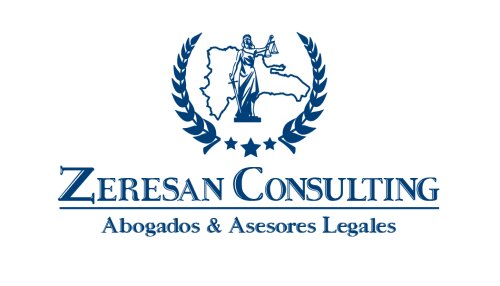Best Child Custody Lawyers in Santo Domingo Este
Share your needs with us, get contacted by law firms.
Free. Takes 2 min.
Free Guide to Hiring a Family Lawyer
List of the best lawyers in Santo Domingo Este, Dominican Republic
About Child Custody Law in Santo Domingo Este, Dominican Republic
Child custody law in Santo Domingo Este, like the rest of the Dominican Republic, is primarily guided by the country's Family Code. These laws aim to protect the welfare and best interests of the child while awarding custody. Custody decisions typically emphasize the child's need for a stable, loving environment and consider factors such as the parent's ability to provide for the child's physical and emotional needs, the child's age, and the living conditions each parent can offer. Shared custody is a common arrangement if both parents demonstrate that they can cooperatively care for the child.
Why You May Need a Lawyer
Engaging a lawyer for child custody cases in Santo Domingo Este can be crucial due to the complexity of legal proceedings and the emotional nature of custody disputes. Common situations requiring legal assistance include:
- Divorce or separation where child custody needs to be determined.
- Modification of an existing custody arrangement due to changes in circumstances.
- International custody disputes or parental abduction issues.
- Enforcement of visitation rights.
- Cases involving allegations of abuse or neglect.
Local Laws Overview
The Family Code and the Children and Adolescents Code form the legal framework governing child custody in the Dominican Republic. Key aspects include:
- Focus on the best interests of the child in all decisions.
- The potential for both parents to receive joint custody, allowing equal participation in the child's life.
- Consideration of each parent's capacity to care for the child, which includes financial stability, living conditions, and emotional support.
- Preference for maintaining stability in the child's life, often prioritizing continuity in education, community, and family relationships.
Frequently Asked Questions
Is joint custody common in Santo Domingo Este?
Yes, joint custody is a common arrangement in Santo Domingo Este when both parents are deemed capable of responsibly sharing parental duties.
What factors does the court consider in custody decisions?
The court considers the child's best interests, including the parents' ability to provide a stable environment, the child's relationship with each parent, and any special needs of the child.
Can custody arrangements be modified?
Yes, custody arrangements can be modified if there is a significant change in circumstances affecting the child's wellbeing, such as relocation or changes in a parent's living situation.
How can a parent’s conduct affect custody decisions?
A parent's conduct, including any history of violence, substance abuse, or neglect, can critically impact custody decisions and may result in restricted visitation rights or loss of custody.
Are grandparents or other relatives considered for custody?
If neither parent is deemed fit, the court may consider close relatives, such as grandparents, as potential custodians in the child's best interest.
Can my child decide who to live with?
The child's wishes are considered, especially if they are mature enough, but the final decision rests with the court, prioritizing the child's best interests.
Is there a preference for one parent over the other in custody cases?
There is no automatic preference for mothers or fathers; the court evaluates each case based on the parents' capacity to meet the child's needs.
What should I do if the other parent violates custody orders?
If a custody order is violated, you can petition the court for enforcement, which may impose penalties on the non-compliant parent.
How long do custody proceedings typically take?
The duration of custody proceedings varies, often dependent on the complexity of the case and the court's schedule, with some cases taking several months to resolve.
Can custody determinations be appealed?
Yes, custody determinations made by the court can be appealed if there is a belief that the decision did not adequately consider the child's best interests or misapplied legal principles.
Additional Resources
Several resources are available to assist those involved in child custody disputes in Santo Domingo Este:
- Public Ministry's Office for the Protection of Children and Adolescents: Provides legal support and information on children's rights.
- National Council for Children and Adolescents (CONANI): Offers services and support for child welfare and protection.
- Local Family Courts: Handle family-related cases, including custody disputes, and can provide procedural guidance.
Next Steps
If you're in need of legal assistance in a child custody matter, consider taking the following steps:
- Consult with a family law attorney who is experienced in Dominican Republic custody laws.
- Gather all necessary documents, including evidence of your relationship with the child, financial records, and any relevant legal documents.
- Consider reaching out to local resources and support organizations for guidance and assistance.
- Plan for mediation or negotiation with the other parent if possible, to reach an amicable arrangement outside of court.
Lawzana helps you find the best lawyers and law firms in Santo Domingo Este through a curated and pre-screened list of qualified legal professionals. Our platform offers rankings and detailed profiles of attorneys and law firms, allowing you to compare based on practice areas, including Child Custody, experience, and client feedback.
Each profile includes a description of the firm's areas of practice, client reviews, team members and partners, year of establishment, spoken languages, office locations, contact information, social media presence, and any published articles or resources. Most firms on our platform speak English and are experienced in both local and international legal matters.
Get a quote from top-rated law firms in Santo Domingo Este, Dominican Republic — quickly, securely, and without unnecessary hassle.
Disclaimer:
The information provided on this page is for general informational purposes only and does not constitute legal advice. While we strive to ensure the accuracy and relevance of the content, legal information may change over time, and interpretations of the law can vary. You should always consult with a qualified legal professional for advice specific to your situation.
We disclaim all liability for actions taken or not taken based on the content of this page. If you believe any information is incorrect or outdated, please contact us, and we will review and update it where appropriate.










